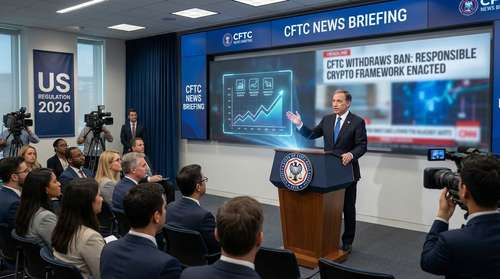Binance finds itself at the center of a storm in Nigeria. Speculations have arisen among Nigerian users that the exchange might have implemented a price cap at the government's behest.
On February 21, Bayo Onanuga, a special adviser to Nigerian President Bola Tinubu, launched a scathing attack on Binance via social media platform X, accusing the exchange of "blatantly setting exchange rates for Nigeria, hijacking CBN's role."
He urged the Economic and Financial Crimes Commission (EFCC) and the Central Bank of Nigeria (CBN) to take action against platforms attempting to manipulate the national currency, stating that if not addressed, this could lead to the banning of crypto in the country.
The Naira-Dollar manipulators
— Bayo Onanuga (@aonanuga1956) February 21, 2024
I chanced on an X post Tuesday night by one Brother Bernard @Mikael C Bernard who railed against what he called the order of the EFCC, NSA on Finance to set a cap on traders selling USD tokens for Naira equivalent.
He disclosed that token sellers… pic.twitter.com/c9YBjawJMz
Binance's troubles escalated when its peer-to-peer (P2P) platform for Nigerian users automatically paused after users reported difficulties selling USDT above a specific price.
Binance, quick to respond, labeled the issue as a "temporary suppression of prices" and assured users that the problem was promptly addressed to resume normal trading activities.
However, frustrated users flooded Nigerian social media with complaints about their inability to trade USDT on the platform, coinciding with the country's fiat currency hitting record lows against the US dollar.
Binance's Pivotal Role in Nigerian Forex Trades
Nigerians have increasingly turned to Binance as a haven for purchasing digital assets and seeking protection against rising inflation and currency devaluation.
Binance's P2P platform, in particular, has become a vital venue for price discovery in Nigerian foreign exchange trades.
This surge in crypto adoption is partly a response to Nigeria's economic challenges, where the CBN measures to stabilize the economy and currency have seen limited success.
The CBN, attributing the country's inflation and financial instability to speculative traders, has expressed concerns.
Former presidential aide Bashir Ahmad pointed fingers at crypto exchanges, suggesting their unregulated status in forex operations leads to exchange rate fluctuations, affecting entities like the Bureau De Change.
On the other hand, advocates like Femi Longe argue that the surge in Bitcoin and crypto trading in Nigeria resulted from the CBN's previous policy restricting foreign exchange access.
Binance clarified its stance, asserting that it is not a price discovery platform.
The exchange emphasized that market forces, not Binance, determine prices on its platform, and it should not be considered a substitute for official currency pricing in Nigeria.
Despite this, Nigeria has emerged as one of the world's largest P2P markets, with significant trading activity, exemplified by the USDT/NGN trading pair alone, recording trades worth 2.7 billion Naira ($1.8 million) in the previous day.
Binance Implements Price Cap: Regulatory Compliance or Strategic Move?
In response to the growing controversy and regulatory concerns, Binance has introduced a price cap for Tether (USDT) tokens on its P2P platform in Nigeria.
Traders are now restricted from selling USDT above the set cap of 1,802 naira per USDT.
Binance, in a Tuesday post, revealed that this decision was made in collaboration with Nigerian authorities, reflecting the exchange's commitment to cooperate with local regulators.
"As industry leaders, we are working hand in hand with local authorities, lawmakers, and regulators to ensure we act on non-compliance," the exchange stated in its blog post.
This move by Binance has stirred further controversy, leading to the blocking of accounts belonging to traders attempting to sell USDT above the imposed limit.
Consequently, some traders have sought refuge in alternative exchanges to trade USDT freely without such restrictions.
The decision to implement a price cap aligns with the joint efforts of Nigeria's Office of the National Security Adviser and the Central Bank of Nigeria (CBN) to combat forex speculation and address issues affecting the country's economic stability.
These efforts come in response to the significant role played by domestic and international speculators in the depreciation of the Nigerian naira, exacerbating inflation and causing economic instability.
Nigeria's Tense Relationship with Binance Continues
The current situation adds to the ongoing tensions between Nigeria and Binance.
In July 2023, the Nigerian Securities and Exchange Commission (SEC) warned local investors against using Binance, asserting that the exchange lacked the necessary licensing.
The SEC deemed Binance's operations illegal and emphasized the high risk associated with cryptocurrency investments, cautioning investors about the potential for total loss.
Despite being the largest P2P market globally, Nigeria's Central Bank placed a ban on crypto trading in 2021.
However, in December 2023, the ban was lifted through a circular sent to banks, allowing them to facilitate cryptocurrency transactions.
This move addressed the difficulties many Nigerians encountered when conducting foreign exchange transactions through traditional banking and Bureau de Change channels.
The lifting of the ban has solidified Nigeria's position as a crypto-savvy nation, surpassing even the United States and European countries in terms of crypto awareness and knowledge.
A recent survey revealed that 99% of Nigerians are fully aware of cryptocurrencies, with 70% understanding blockchain technology's value, operations, and fundamentals.




